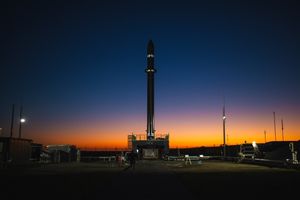Financial News
More News
View More
Ulta’s Stock May Be Set for a Glow-Up—20% Upside Ahead? ↗
Today 8:57 EST
MarketBeat Week in Review – 12/1 - 12/5 ↗
Today 7:00 EST
Rocket Lab’s Big Rebound? Analysts Suggest the Dip's a Gift ↗
December 05, 2025
Meta’s AI Moment? New SAM 3 Model Has Wall Street Turning Bullish ↗
December 05, 2025
Recent Quotes
View More
Stock Quote API & Stock News API supplied by www.cloudquote.io
Quotes delayed at least 20 minutes.
By accessing this page, you agree to the Privacy Policy and Terms Of Service.
Quotes delayed at least 20 minutes.
By accessing this page, you agree to the Privacy Policy and Terms Of Service.
© 2025 FinancialContent. All rights reserved.







